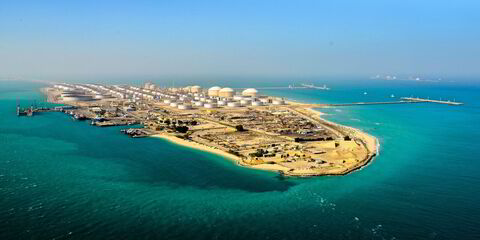Maritime decarbonisation is entering a new era of economic realism. Rising interest rates, value-chain inflation, soft demand and regulatory uncertainty have resulted in the cancellation of high-profile projects.
However, green fuels still offer the best way to comply with net-zero goals while also delivering long-term competitive advantages.
If maritime first movers can seize these opportunities, others will follow, putting an industry that generates 2% to 3% of global emissions on the path to decarbonisation.
Enthusiasm for zero-emission fuels has been growing. Investment decisions were being made as early as 2022, with green methanol emerging as the most promising option.
However, the chicken-and-egg problem has yet to be resolved: buyers point to insufficient supply as the biggest bottleneck to decarbonisation, while suppliers cite fragmented or non-existent demand as the challenge.
Economic viability
Being ahead of the curve in any industry can mean operating in the absence of subsidies or policies that favour the development of new technologies. And where early policies exist, they may come with teething problems.
However, this is not the full picture. Creating the market for clean technologies calls for a willingness among stakeholders across the value chain — from customers to suppliers — to embrace change by adopting new operational norms and developing viable commercial models for green fuels.

In establishing these models, first movers face risks and uncertainties in everything from offtake volumes to contract durations and pricing. Without distributing the risks, only those with the strongest balance sheets can participate, holding back the scale needed for a meaningful transition.
On the supplier side, the steep learning curves of early-stage projects mean economies of scale have yet to materialise.
As pioneering projects move from concept to reality, they must apply strict cost disciplines as well as a willingness to confront financial realities and course-correct as needed. Companies must carefully manage capital expenditure to stay afloat.
Strategic rewards
Given the green fuel challenges and other obstacles to decarbonisation, being a first mover in the maritime sector might not appear to be an attractive option.
However, the green fuels sector still offers several strategic advantages:
- Early movers can help shape new laws and standards. They can also access the emerging grants and preferential treatments governments use to incentivise the adoption of sustainable technologies.
- They can acquire experience — in refining processes, reducing costs, or enhancing efficiencies — that is hard for later entrants to replicate.
- Customer-facing companies can establish market leadership, strengthen their brands and foster customer loyalty.
- Taking a stance on climate enhances the ability to attract and retain top talent among values-driven employees.
None of these opportunities can be seized without robust operational, structural and economic pillars. It is essential, for example, to be agile and adapt to setbacks by pivoting to new strategies or technologies. This flexibility includes a willingness to collaborate. Industry coalitions and public-private cooperation provide the support and risk-sharing needed to overcome barriers and drive innovation and implementation.
Most importantly, this new environment demands paying close attention to fundamental economics. Securing diverse funding sources and investing in research and development are crucial for mitigating risks and driving innovation.
Meanwhile, projects must exercise strict capex management and leverage any financial advantage available — such as sector coupling, auxiliary revenue streams, strategic locations, biomass/energy access and subsidies — to drive up returns.
Stand firm
Early adopters that can stay the course, and the fast followers that learn from them, play a critical role in driving maritime decarbonisation by developing winning technologies and spurring demand. This is also the foundation industry coalitions such as the First Movers Coalition is built upon and currently marshalling the power of procurement across 100+ companies in seven different sectors, including shipping.
Challenges are inevitable but the potential of zero-emission fuels to decarbonise the shipping sector remains strong. Industry leaders must continue to embrace the challenges and seize the opportunities that come with being on the cutting edge of change.
If companies can adapt to the emerging realities, policy and finance ecosystems that support market growth, first movers and fast followers can place themselves at the forefront of a transition that will secure a sustainable future for their businesses and for the world.
By Peter Jameson, partner, Boston Consulting Group, and Mette Asmussen, lead maritime sector initiatives, World Economic Forum
Do you have an opinion to share?
Email: news@tradewindsnews.com




